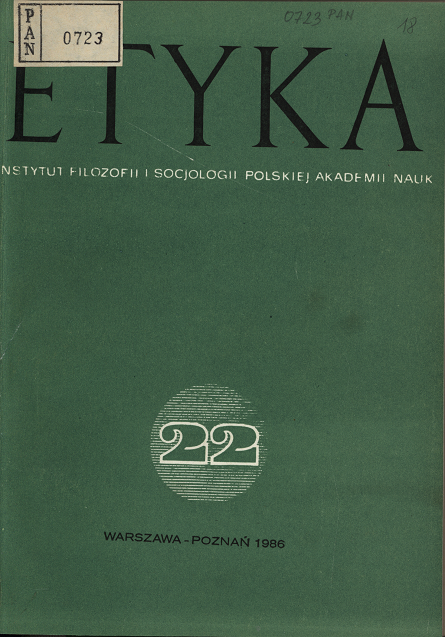Particularity and morals
Keywords:
Immanuel Kant, filozofia, afekt, etykaAbstract
The paper discusses the nature of the logical constraints imposed on certain kind of moral judgement by the situations to which they are applied. This is often obscured by philosophers through a tendency to overestimate and misinterpret the role of general principles in the making of these judgements. It is argued that what is of central importance here is the role of moral concepts in determining how we understand the individual reality of particular human beings. This understanding is manifested in the particular respect concern elicited by the people with whom we have dealings. Although this respect is intimately connected with what has been called the rationality of human beings, the Kantian and neo-Kantian account of this connection is mistaken and does not pay sufficient regard to the way in which certain fundamental moral responses are responses to human beings in their particularity rather than as instantiations of general categories.
Downloads
Published
Issue
Section
License
Works published in ETYKA are available under the Creative Commons Attribution No Derivatives 4.0 International Licence (CC BY-ND), which entails acknowledgement of authorship without derivative works. Under this licence, Authors keep their copyrights and agree that their works can be used again legally for any purpose, including commercial ones, except for the creation of derivative works, without the need to obtain previous consent of the Author or publisher. The articles can be downloaded, printed, copied and disseminated; under the condition that the authorship is indicated accordingly, together with the place of original publication. The Authors preserve their copyrights to the above-mentioned works without any limitation whatsoever.



